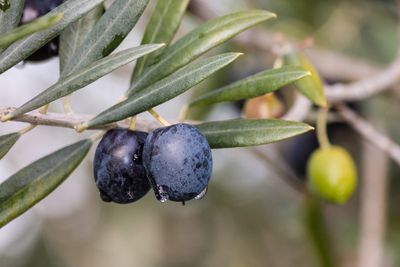Can Olive Trees Grow in Zone 6?
Olives need long warm summers of at least 80 F. (27 C.), along with cool night temperatures of 35-50 F. (2-10 C.) in order to set flower buds. This process is referred to as vernalization. While olive trees need to experience vernalization to set fruit, they freeze from extremely cold temperatures. Some resources claim that a few varieties of olive can withstand temps down to 5 F. (-15 C.). The caveat here is that the tree MAY re-emerge from the root crown, or it may not. Even if it does return, it will take several years to become a producing tree again if it isn’t too severely damaged by the cold. Olive trees become cold damaged at 22 degrees F. (-5 C.), although temperatures of even 27 degrees F. (3 C.) can damage branch tips when accompanied by frost. That said, there are thousands of olive cultivars and some are more cold-resistant than others. While variations in temperature occur within a USDA zone, certainly those in zone 6 are too cold for even the most cold-hardy olive tree. Generally, olive trees are only suited to USDA zones 9-11, so sadly, there are no zone 6 olive tree cultivars. Now with all that in mind, I have also read claims of trees dying down to the ground with temps below 10 F. (-12 C.) and then re-growing from the crown. The cold hardiness of olive trees is similar to that of citrus and improves over time as the tree ages and increases in size.
Growing Zone 6 Olives
While there are no zone 6 olive cultivars, if you still want to try growing olive trees in zone 6, the most cold-hardy include:
Arbequina Ascolana Mission Sevillano
There are a couple of other cultivars considered cold-hardy olives but, unfortunately, they are used commercially and not obtainable to the average home gardener. Probably the best option for growing in this zone is to container grow the olive tree so it can be moved indoors and protected upon the onset of cold temperatures. A greenhouse sounds like an even better idea.
